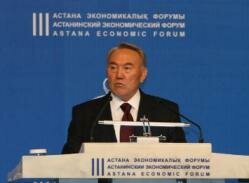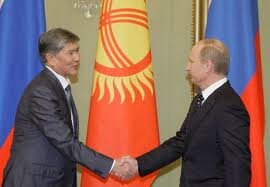



This paper aims to investigate the causal relationship between macroeconomic indicators and Kazakhstan stock exchange (KASE) index. The results indicate the existence of cointegrations between these series implying violation of market efficiency hypothesis. The results of the study are in compliance not only with theory but also with the issues in practice. Using the bound testing approach, within the Autoregressive Distributed Lag (ARDL) model framework, we examine their long-run relationship. Johansen Cointegration test, Engel-Granger two-step approach and Granger causality test reveal that the main determinants of KASE are income per capita, inflation and the exchange rate and dummy variable accounting for worldwide crisis impact. Other effect on stock index comes from oil price volatility measure, causing windfall gain effect as a consequence of rapid, but temporary, increase in oil price.
Full Paper Available online at http://www.academicjournals.org/AJBM
Direct link to paper

 O-Sense
O-Sense
We have 4 guests and no members online